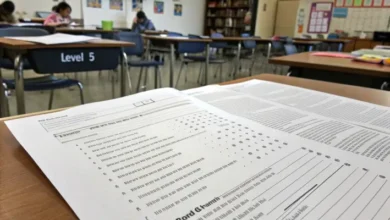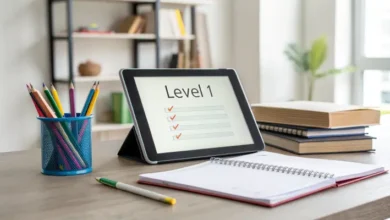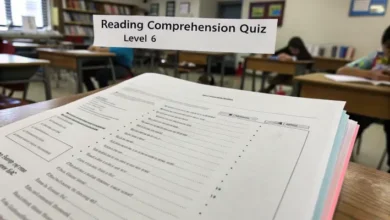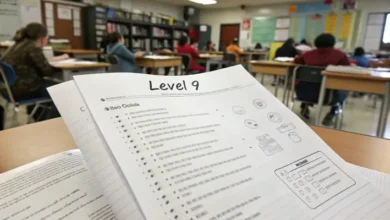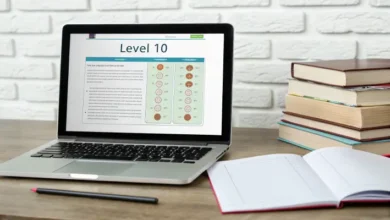Free reading comprehension quiz level 7
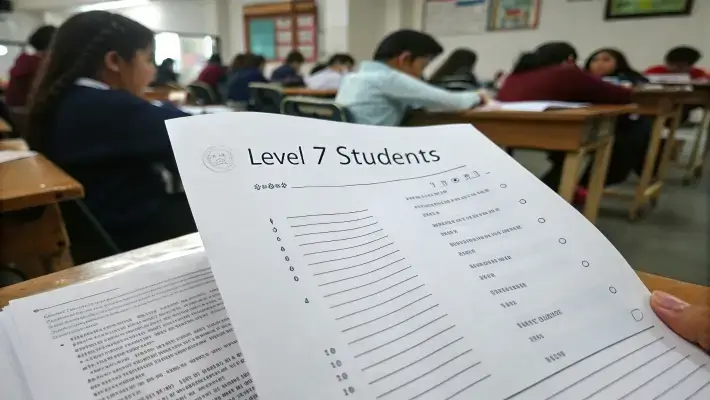
Warning: Undefined array key "HTTP_SEC_FETCH_SITE" in /home/domnutda/westdat.com/wp-content/plugins/quiz-maker/includes/class-quiz-maker-iframe.php on line 71
Warning: Undefined array key "HTTP_SEC_FETCH_SITE" in /home/domnutda/westdat.com/wp-content/plugins/quiz-maker/includes/class-quiz-maker-iframe.php on line 71
Free reading comprehension quiz
Free Reading Comprehension Quiz Level 7: Unraveling Text Complexity
Understanding a text deeply and critically is an essential skill in the modern world. In education, gauging this skill involves a variety of tools and tests, one of which is a reading comprehension quiz.
Particularly at level 7, which typically corresponds to the seventh grade in many educational systems, these quizzes are designed not only to assess whether students can extract explicit information from a text but also whether they can infer, interpret, and evaluate the information presented.
The Integral Role of Perplexity and Burstiness
To ensure a reading comprehension quiz for level 7 students is effective and challenging, two linguistic principles come into play: perplexity and burstiness.
Perplexity:
- Defining the Term: Perplexity is a measure of the complexity of a text, pertaining to its vocabulary, sentence structure, and conceptual depth.
- Why It’s Important: Higher levels of perplexity in reading materials can stretch a student’s understanding and prompt them to engage with more sophisticated language patterns.
- Balancing Act: However, it is necessary to balance complexity with clarity to ensure the reader is not overwhelmed by the text.
Burstiness:
- Understanding Burstiness: Burstiness in writing reflects the natural ebb and flow of sentence length and structure that characterizes human communication.
- The Rationale: Varied sentence structures can help readers develop a better rhythm and enhance their ability to follow complex ideas.
- Crafting Content: When constructing a quiz, it’s important to intersperse terse factual queries with longer, more discursive questions.
In order to craft comprehensively effective quizzes, content must also be contextually relevant and coherent.
Contextual Relevance and Coherence
Contextual Relevance:
- Tailoring to the Audience: Material should resonate with a seventh-grader’s world view, interests, and the typical curriculum.
- Integrating Current Events: Including topical issues or recent discoveries can increase engagement and provide real-world applications for the skills being tested.
Coherence:
- Logical Flow: Ideas should transition smoothly, allowing students to follow the argument or narrative easily.
- Unity of Ideas: The questions should all relate back to the core topic or text structure, reinforcing understanding through repetition and variation.
Constructing the Quiz
Comprehension Questions:
- Literal Understanding: These questions should encourage students to retrieve specific facts directly from the text.
- Example: What is the main idea communicated in the third paragraph?
- Inferential Reasoning: At times, what’s between the lines is just as important as the printed words.
- Example: Based on the author’s description of the main character, how do you think they feel about their situation?
- Critical Thinking: Reflective questions that ask students to evaluate or analyze information boost higher-order thinking.
- Example: What is the author’s purpose in presenting these statistics? Do they effectively support the argument?
- Synthesis and Application: Encouraging students to draw connections between different parts of the text, or to apply information to new scenarios, tests depth of understanding.
- Example: How would the story change if it were set in a different time period?
Passage Selection:
- Diverse Genres: Including fiction, non-fiction, poetry, and persuasive texts exposes students to various writing styles.
- Cultural Representations: Featuring works from a variety of cultures and perspectives promotes inclusivity and broadens worldviews.
The Significance of a Level 7 Reading Comprehension Quiz
Metrics for Educational Development:
- Tracking Progress: Regular assessments help educators identify areas where students excel or need improvement.
- Curriculum Alignment: Quizzes must reflect the learning objectives set forth in the academic standards for grade 7.
Beyond the Classroom:
- Life-Long Skills: Reading comprehension is a foundational skill that influences future academic success and everyday life.
- Adaptability to New Information: In an age of information overload, the ability to parse and understand complex material is invaluable.
Developing Quiz Content
Here’s how educators can design text content for a level 7 reading comprehension quiz that satisfies the demand for perplexity and burstiness:
Literary Devices and Vocabulary:
- Employment of Figurative Language: Including metaphors, similes, and personification requires students to interpret meaning.
- Advanced Lexicon: Introducing higher-level vocabulary aids in linguistic growth.
Conceptual Challenges:
- Abstract Ideas: Passages that delve into themes like morality, ethics, or philosophy can enhance critical thinking.
- Multiple Perspectives: Texts that present more than one viewpoint on a topic compel readers to consider and compare different arguments.
Quiz Formatting:
- Multiple-choice Questions: Assessing recognition and recall of information.
- Short-answer Prompts: Requiring concise articulation of insights.
- Essay Questions: Encouraging students to express their understanding in a structured, analytical manner.
Free reading comprehension quiz level 7
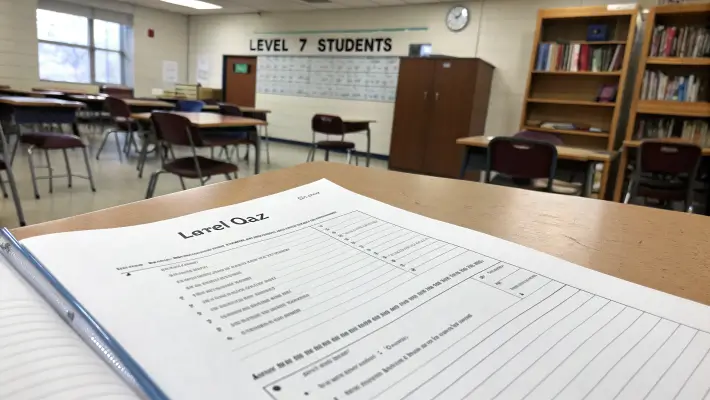
Our online quiz is designed for middle school students at Level 7 to assess their comprehension abilities. Take the test now for free!
Conclusion
A well-constructed reading comprehension quiz for level 7 should be a balancing act that weaves together the intricate threads of perplexity and burstiness while maintaining contextual relevance and a coherent narrative flow.
As educators understand and implement these principles, they will be crafting quizzes that not only evaluate students’ current abilities but also foster a robust skill set that serves as a springboard for advanced literacy and critical thinking.

